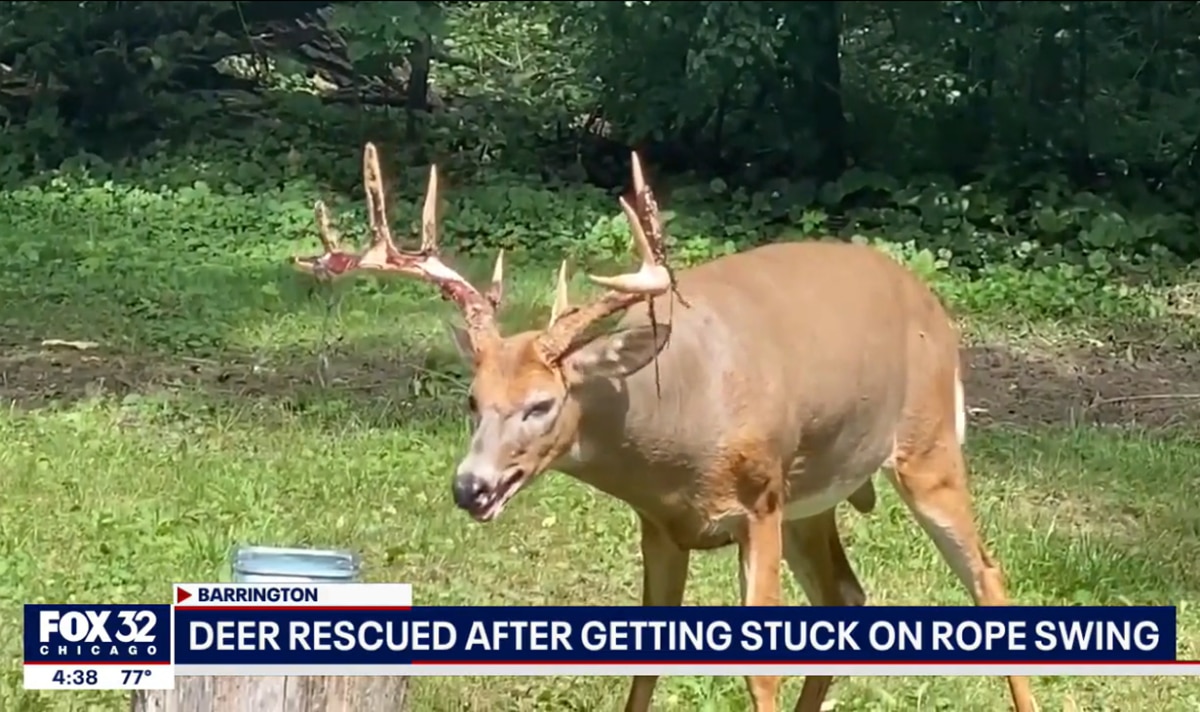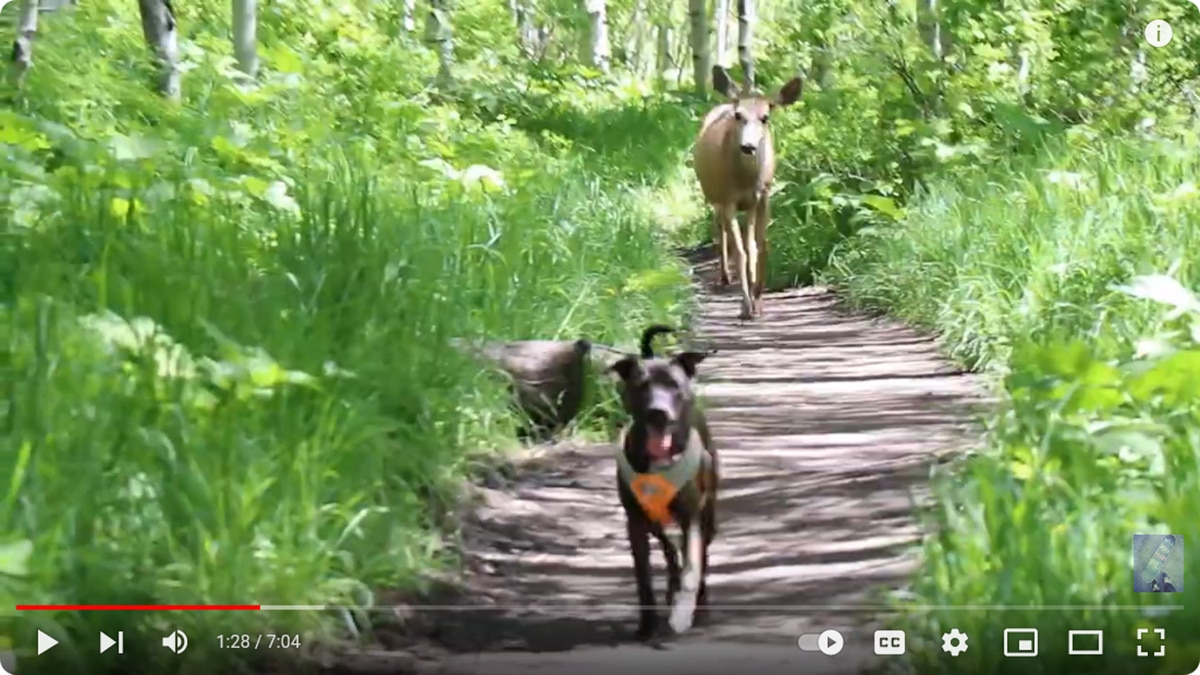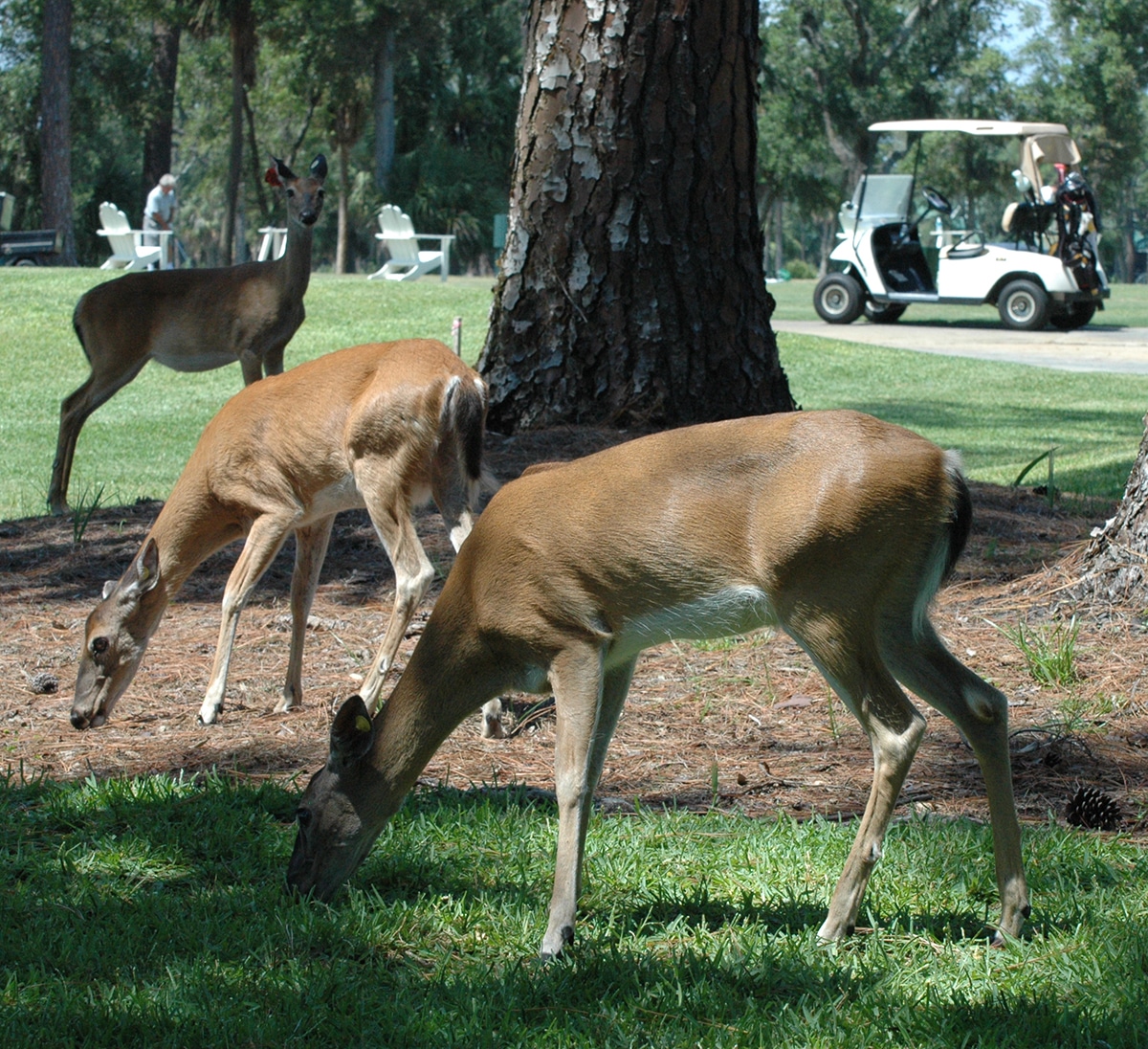Have you ever considered that Bambi might not be so harmless? While often perceived as gentle forest creatures, deer possess the capacity for aggression and, yes, deer attacks on humans, while rare, do indeed occur.
The key is understanding that these are wild animals, driven by instinct and circumstance. Several factors can contribute to a heightened risk of deer attacks. These include instances where deer have become habituated to human presence, losing their natural fear due to lack of hunting or consistent interaction. Most commonly, deer attacks stem from defensive behavior during mating season or when a doe is protecting her fawn. It's crucial to acknowledge this potential for aggression and exercise caution when encountering deer in their natural habitat.
| Deer Species | Common Habitat | Average Weight | Antler Size (Bucks) | Gestation Period |
|---|---|---|---|---|
| White-tailed Deer (Odocoileus virginianus) | North and South America | 100-300 lbs | 20-30 inches | 200 days |
| Mule Deer (Odocoileus hemionus) | Western North America | 125-330 lbs | 24-36 inches | 200-210 days |
| Red Deer (Cervus elaphus) | Europe, Asia, North America | 240-530 lbs | 30-48 inches | 230-260 days |
| Sika Deer (Cervus nippon) | East Asia (introduced elsewhere) | 50-140 lbs | 12-20 inches | 210-230 days |
For more information on deer species and behavior, visit National Wildlife Federation.
- Discovering Maggie Smith Art Music Amp Legacy Today
- Emani Asghedom Nipsey Hussles Daughter Custody Legacy
Deer attacks on humans are infrequent, but the possibility remains. A majority of these incidents occur during the mating season, often triggered by aggressive bucks vying for dominance. Similarly, does fiercely defend their young fawns, which can lead to confrontations with humans perceived as threats. Understanding these peak aggression periods is paramount for minimizing the risk of dangerous encounters.
The question, "Do deer really attack humans?" often arises, especially among those new to hunting or simply living in close proximity to deer populations. The answer is a resounding yes, they can. Therefore, it is essential to equip oneself with knowledge about deer behavior and potential warning signs to prevent unexpected injuries.
While deer often grace our landscapes with their elegance, the reality is that they are wild animals. Deer can be vicious and violent when provoked. So, it is imperative to maintain awareness of your surroundings and grant deer and other wildlife a generous amount of space.
- Storm Smith Below Deck Med Drama Moustache Wars Whats Next
- Nathan Berhow The High School Shooting More Shocking Details
The most predictable catalyst for a deer attack, or any wild animal for that matter, is intrusion upon a mother and her offspring. Whether it's deer, elk, or moose, these creatures will aggressively defend their calves or fawns against perceived threats.
Deer are not domesticated animals, and therefore, they do not welcome human touch. Attempts to pet a deer can be interpreted as a threat, provoking an aggressive response. These are not cuddly creatures seeking affection; they are wild animals governed by instinct.
Naturally, deer exhibit a fear of humans and other large animals. This inherent fear serves as a survival mechanism, enabling them to evade potential dangers.
What should you do if a deer attacks? Unfortunately, sometimes an aggressive deer will attack humans irrespective of your actions. The underlying cause may be a rutting buck, a mother deer during or after mating season, or a group of cornered animals that feel endangered.
Deer attacks on humans are most likely to occur during mating season, or from a doe safeguarding her fawn. Bucks, driven by the frustration of unmet mating opportunities, may initiate attacks. Their testosterone levels surge during this period, putting them on edge and eager to engage in conflict.
Deer also demonstrate heightened aggression when their young are nearby. A fawn is a vulnerable target, and a doe will fiercely defend it against any perceived threat. This protective instinct can easily translate into aggression towards humans who inadvertently approach a fawn.
While often depicted as gentle and graceful creatures, it is important to remember that deer are still wild animals. Deer attacks on humans, while uncommon, are a real possibility. Knowledge of why and when they act aggressively is essential for personal safety. Understanding these triggers empowers you to prevent potentially harmful encounters.
Why do deer attack humans? Typically, it's when they are cornered and feel trapped. Desperate to escape, they may lash out. Male deer may also attack during the mating season due to heightened frustration or to defend their territories.
During the mating season, male deer experiencing "runt," or rut, are particularly dangerous. This period of intense hormonal activity makes them prone to aggression and unpredictable behavior. Extreme caution should be exercised during this time.
As mentioned earlier, deer are incredibly protective of their young. If a female deer feels that her fawn is in danger, she will not hesitate to act aggressively towards the perceived threat.
Deer attacks are more common than you might initially believe. While they may not be a daily occurrence, the potential for such incidents exists, particularly in areas with dense deer populations.
When do deer attack humans? This question is critical for anyone living in or venturing into deer habitats. The answer lies primarily in understanding their seasonal behaviors and defensive instincts.
Deer attacks on humans are rare but can occur in specific situations. These instances arise when deer feel threatened, especially during mating season or when protecting their young. Encounters during these sensitive times significantly increase the risk of aggression.
For the most part, deer exhibit docile and timid behavior. They generally prefer to avoid human interaction. However, it's crucial to remember that even these gentle creatures have the potential to become aggressive under the right circumstances.
It is extremely rare for deer to attack humans, but that doesn't negate the possibility. As with any wild animal, when cornered and fearful, they may resort to attack as a means of self-preservation.
Deer rarely initiate attacks on humans, but they are capable of aggression under specific conditions. The mating season and perceived threats are the most common triggers.
Deer attacks are often classified as accidents rather than intentional attacks in official reporting. This can underestimate the true frequency of these incidents.
The increasing encroachment of human development on deer habitats is leading to more frequent encounters in urban environments. As deer are forced out of their natural surroundings, they are increasingly seen on city streets and in traffic. This situation poses significant risks to both deer and drivers.
A mother deer will instinctively defend her fawn. If a dog approaches too closely, the mother will likely attack. Similarly, deer may become aggressive if a dog interferes with their access to food sources.
Ordinarily, deer avoid contact with most other animals, including dogs and people. The surprise many experience when dogs attack deer often prompts local news coverage of such events.
There are several key things to keep in mind regarding deer attacks. Understanding these points can help you minimize your risk and respond appropriately if faced with an aggressive deer.
It's important to recognize that deer can be unpredictable and potentially dangerous. While they may appear harmless, their wild nature should always be respected.
The chances of a human being attacked by a deer are slim, but it is a possibility, especially in areas with high deer populations and among those who frequently hike or hunt. Vigilance and awareness are essential in these environments.
What should you do if you are attacked by a deer? The response will vary depending on the situation, but generally, it is important to remain calm, create distance, and protect yourself.
A quick search on YouTube for "deer attack" reveals numerous instances where deer exhibit aggression towards humans. These videos often capture short charges resulting from individuals getting too close or acting inappropriately around the animals.
If you encounter a fawn, maintain a safe distance. The nearby mother deer will likely attack if she perceives you as a threat to her offspring. Avoiding fawns is a crucial safety precaution.
Ultimately, you want to avoid being injured by a deer. Understanding their behavior, respecting their space, and exercising caution are the best ways to achieve this.
Yes, deer will attack humans, but only under specific circumstances. It is essential to remember that these are wild animals that act out of instinct and self-preservation.
These articles delve into various aspects of deer behavior, including their diet, activity patterns, reproductive cycles, and interactions with humans in suburban and other environments. Understanding these factors can provide valuable insights into how to safely coexist with deer.
Learning about the unique behaviors of deer and the reasons behind their actions is key to fostering responsible and safe interactions with these animals. Knowledge is the best defense against potential danger.
This question, "Do deer attack humans?" is particularly relevant in regions with significant deer populations, where encounters are frequent. Addressing this concern helps to promote public safety and responsible wildlife interactions.
Yes, deer can pose a danger to people. They can inflict serious injuries using their antlers and kicks. Therefore, it's crucial to treat them with respect and maintain a safe distance.
Never approach a wild deer. Maintaining a respectful distance is essential for both your safety and the well-being of the animal.
One of the most significant negative interactions between humans and deer involves automobile accidents. Deer are responsible for a tremendous number of collisions each year, resulting in injuries and property damage.


